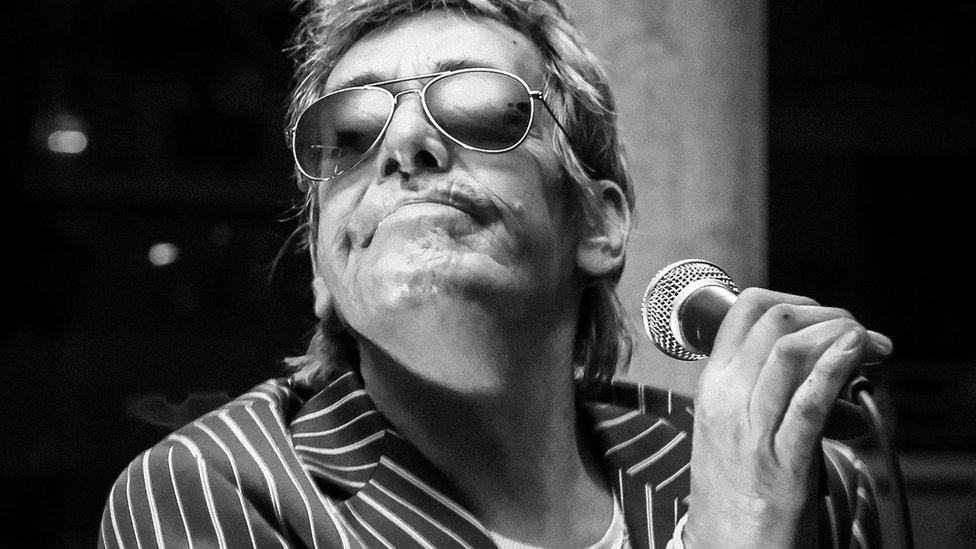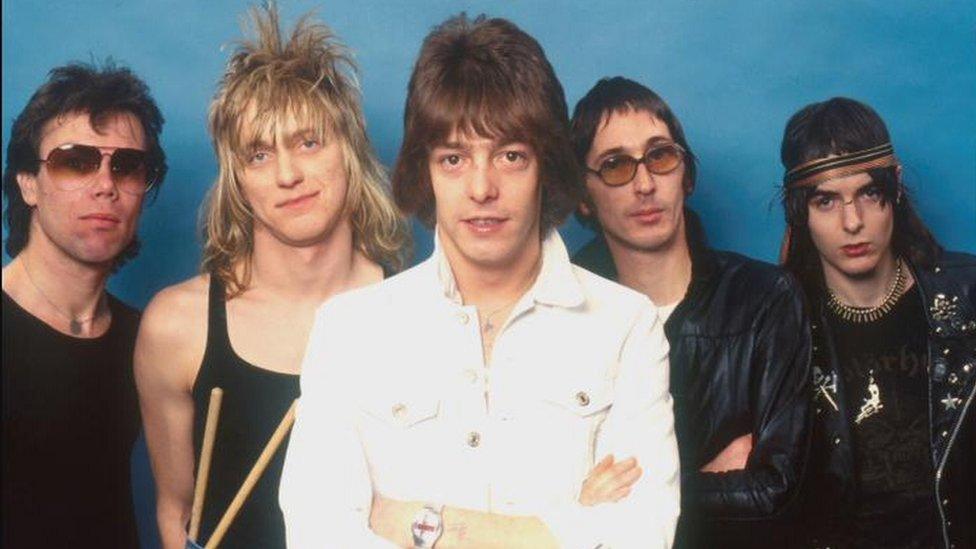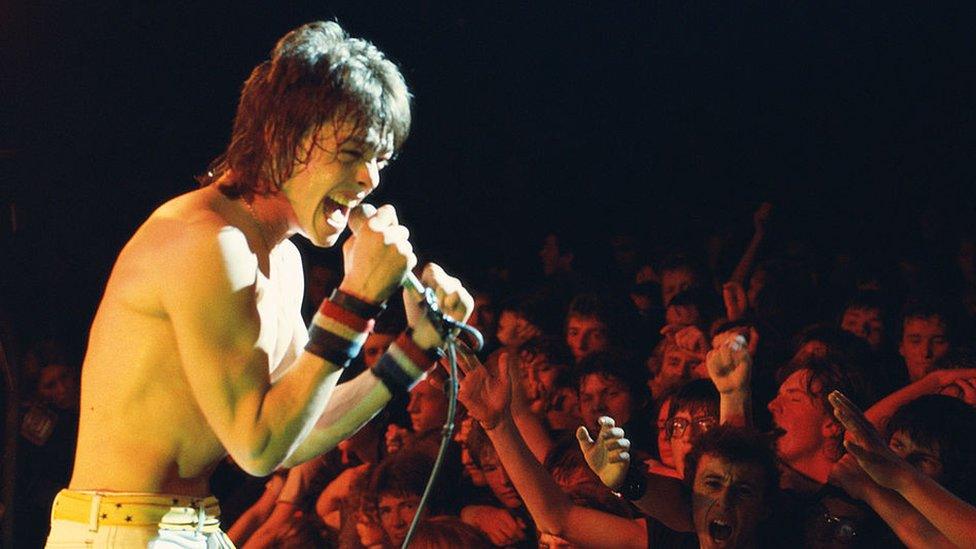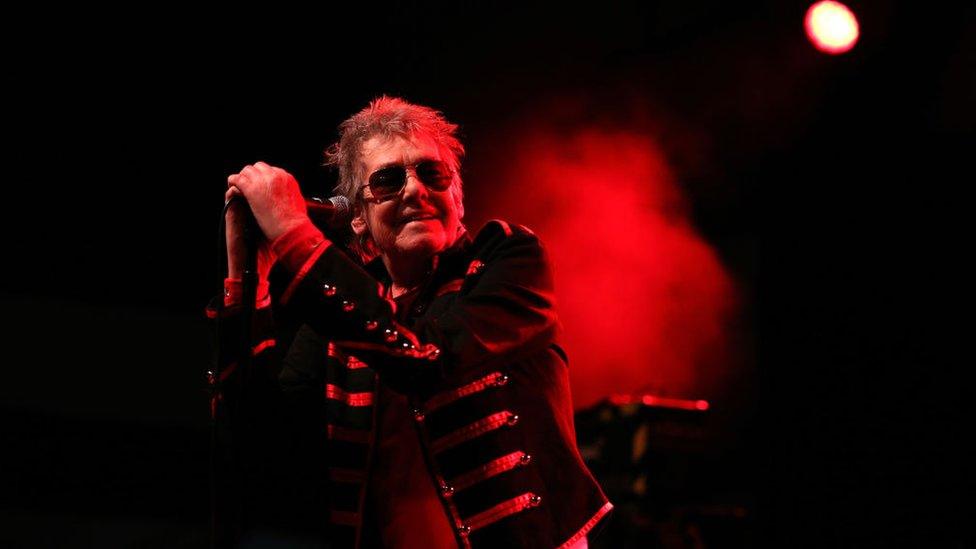Eddie and the Hot Rods: Barrie Masters' death drug-related
- Published

Barrie Masters was described as the "perfect frontman" by one of his bandmates
The death of the lead singer of the band Eddie and The Hot Rods was drug-related, an inquest has concluded.
Barrie Masters, 63, was found dead at his home in Great Wakering, near Southend in Essex, on 1 October last year.
Formed in 1975 in Canvey Island, his band was best known for its 1977 top 10 hit Do Anything You Wanna Do.
Masters' son told the hearing at Chelmsford: "He's been a scallywag but he was our scallywag."
He added: "I've admiration for him. He lived a fantastic life and that's the life he lived."
Suicide 'not in his DNA'
The inquest heard Masters had a background of heroin misuse, alcohol abuse, emphysema and the lung condition chronic obstructive pulmonary disease (COPD).
His medical cause of death was recorded as "intoxication by multiple agents", with police finding no suspicious circumstances.

Eddie and Hot Rods had hits with Do Anything You Wanna Do, Teenage Depression and Quit This Town
Det Insp Paul Ahmed said a concerned neighbour contacted police on the evening of 30 September as he had not seen Masters for several days.
Officers attended the following morning and called paramedics and a doctor, but Masters was pronounced dead at the scene at 13:15 GMT.
He was found with a "number of drug-related items", Mr Ahmed said.
Asked if Masters had ever said he would take his life, his son replied: "No. It wasn't in his DNA."
Regarding any intent to take his own life, Essex Coroner Caroline Beasley-Murray said she was not satisfied Masters undertook a deliberate act knowing he would die.
"I think the straightforward factual way is to record that Barrie Masters died as the result of a drug-related death," she said.

Barrie Masters had great stage presence, BBC Radio Suffolk presenter Stephen Foster said

The singer was the band's only constant member
In February 1977, NME named Eddie And The Hot Rods the most promising emergent act of the year, with the Sex Pistols placing sixth.
They formed part of the pub rock scene which included Dr Feelgood and Ian Dury's Kilburn and the High Roads and released eight studio albums.
After his death the musical world paid tribute to Masters, with the band's guitarist Richard Holgarth describing him as the "perfect frontman".
BBC Radio Suffolk presenter Stephen Foster, who knew the performer well, described him as "one of the best lead singers of his generation" for his "great voice, stage presence and lots of energy".
- Published30 January 2020

- Published2 October 2019
